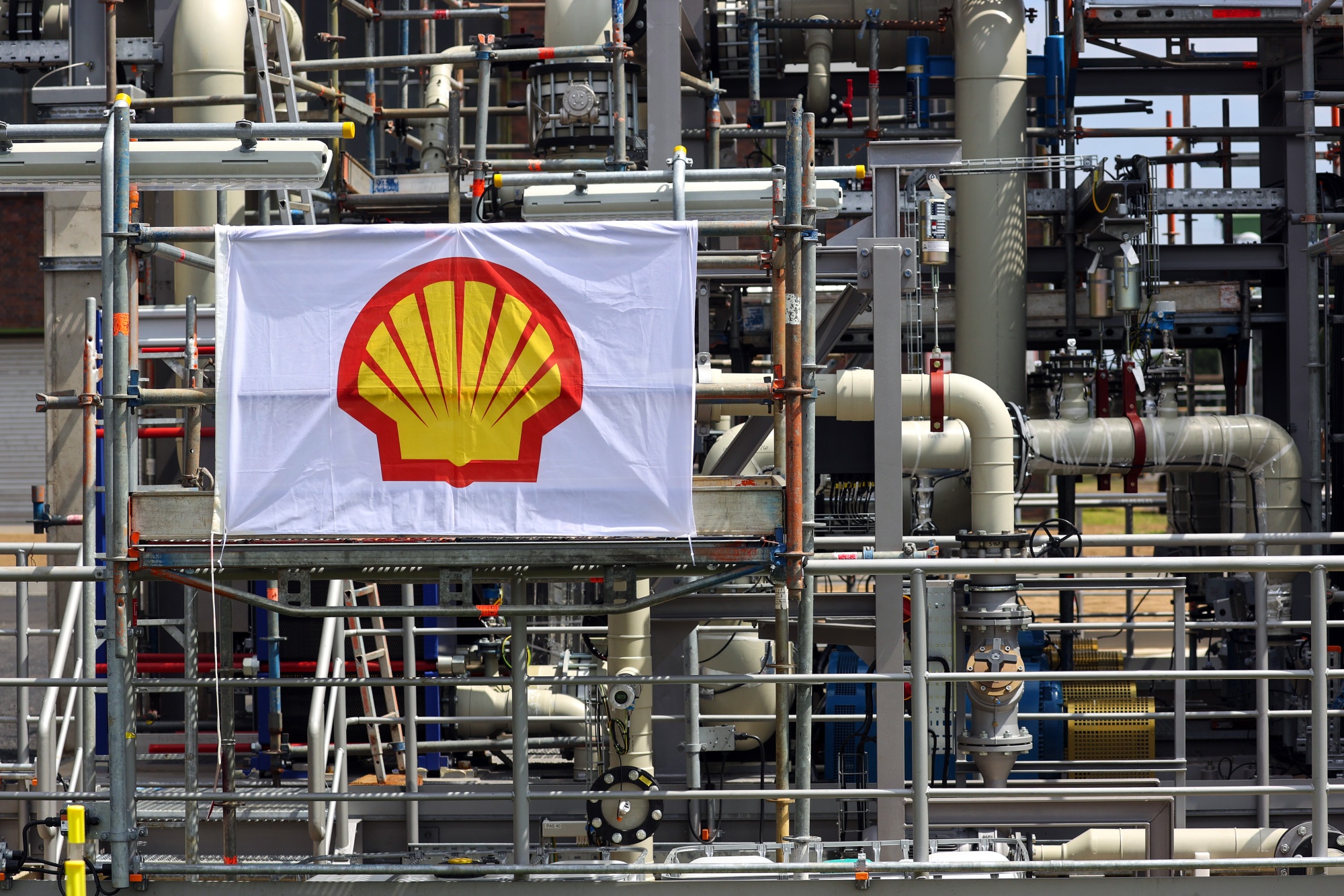- Shell will publish an updated plan for emissions on Thursday
- CEO Sawan is focused on boosting returns for shareholders

Shell Plc has been considering slowing the pace of its carbon-emissions cuts as it updates its energy-transition strategy, according to people familiar with the matter.
Any changes to the company’s climate targets could come as soon as Thursday, when Shell is due to publish an update of its long-term plan for clean energy and greenhouse gas emissions, said the people, who asked not to be named because the information is still private. The move comes as Chief Executive Officer Wael Sawan delivers on a plan to allocate a greater portion of investments into oil and gas in order to give better returns to shareholders.
Shell initiated its plan to become a net-zero company in 2020 under previous CEO Ben van Beurden. Key to its emissions-reduction pathway is net carbon intensity, a measure of the emissions from the energy it sells to customers. In 2021, the company pledged to decrease that intensity by 20% in 2030 versus the 2016 baseline, by 45% in 2035, and to reach net zero in 2050.
The process to update this strategy — something that happens every three years — was known internally as Project Vega, the people said. A team was asked to study different options for the company’s emissions reductions and present them to senior management, they said.
“We look forward to publishing our Energy Transition Strategy report on 14 March,” a Shell spokesperson said. The publication “will contain details of our plans to become a net zero emissions energy business by 2050.”
A reduction in the pace of Shell’s intermediate or long-term climate targets would follow a move by its European peer BP Plc, which last year said it would pump more oil and gas and produce more CO2 emissions this decade than previously planned.
Shareholders rewarded BP with a more than 8% jump in its share price that day, and the company has since come under additional pressure from an activist investor to pivot further back toward oil and gas. More broadly, the European supermajors have been trading at a consistent discount to their US peers, which have remained more firmly committed to fossil fuels.
Shell’s 2050 net zero target has always been aspirational. In public documents, the company has said that it sets plans, outlooks and budgets on a 10-year horizon, meaning they cannot reflect the 2050 or 2035 carbon intensity reduction targets.
As those dates get nearer, they could start to limit how Shell is able to invest. The company has said that if society more broadly hasn’t reached net zero emissions in 2050, then Shell may not meet its target either.
Since taking over the top job at the beginning of 2023, Sawan has said repeatedly that his priority is to deliver greater value for Shell investors. That’s seen the company boost shareholder payouts, cut jobs and direct a greater share of its capital into fossil fuels. The shift has been criticized by green activists and climate-conscious investors including the Church of England Pensions Board.
Share This:




